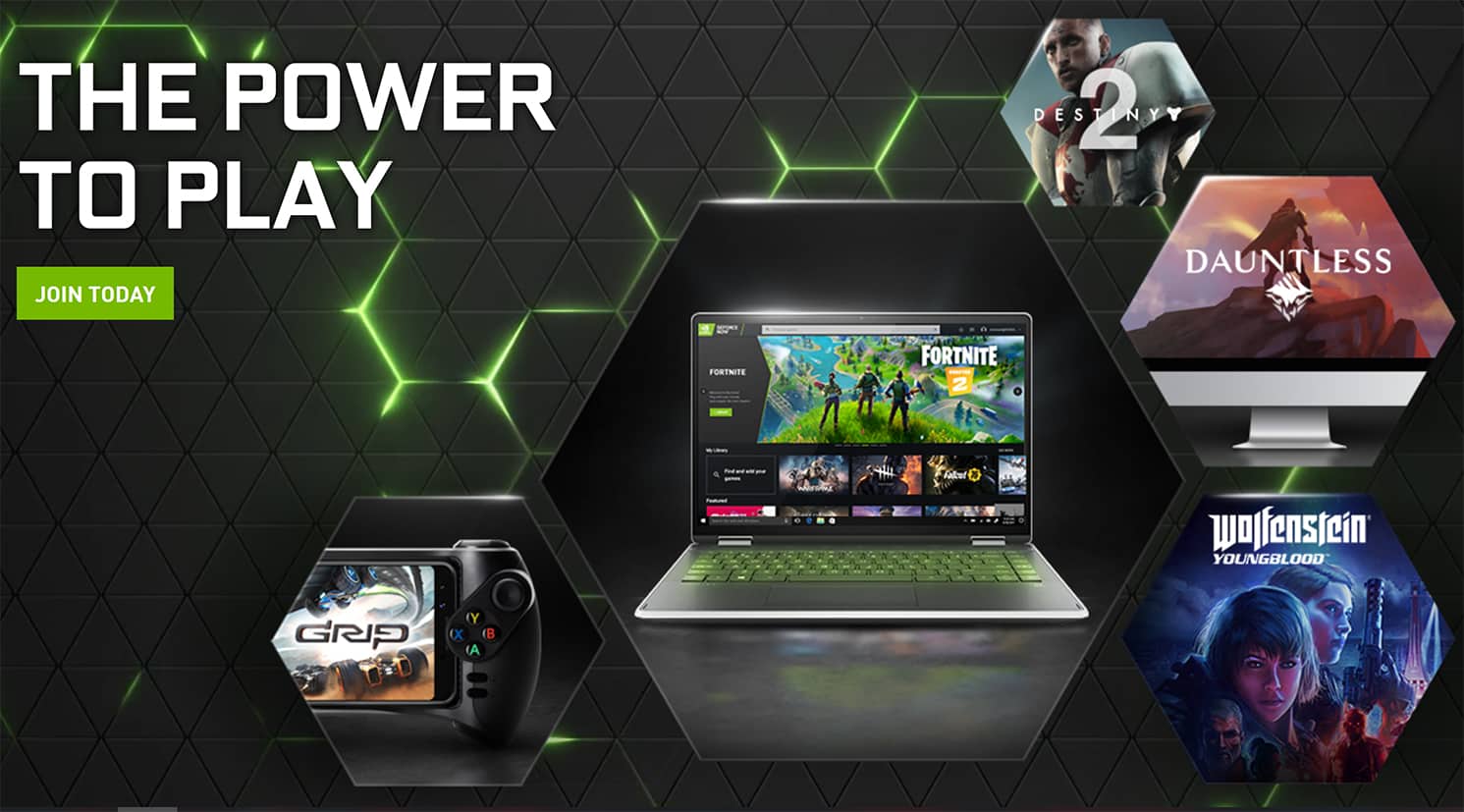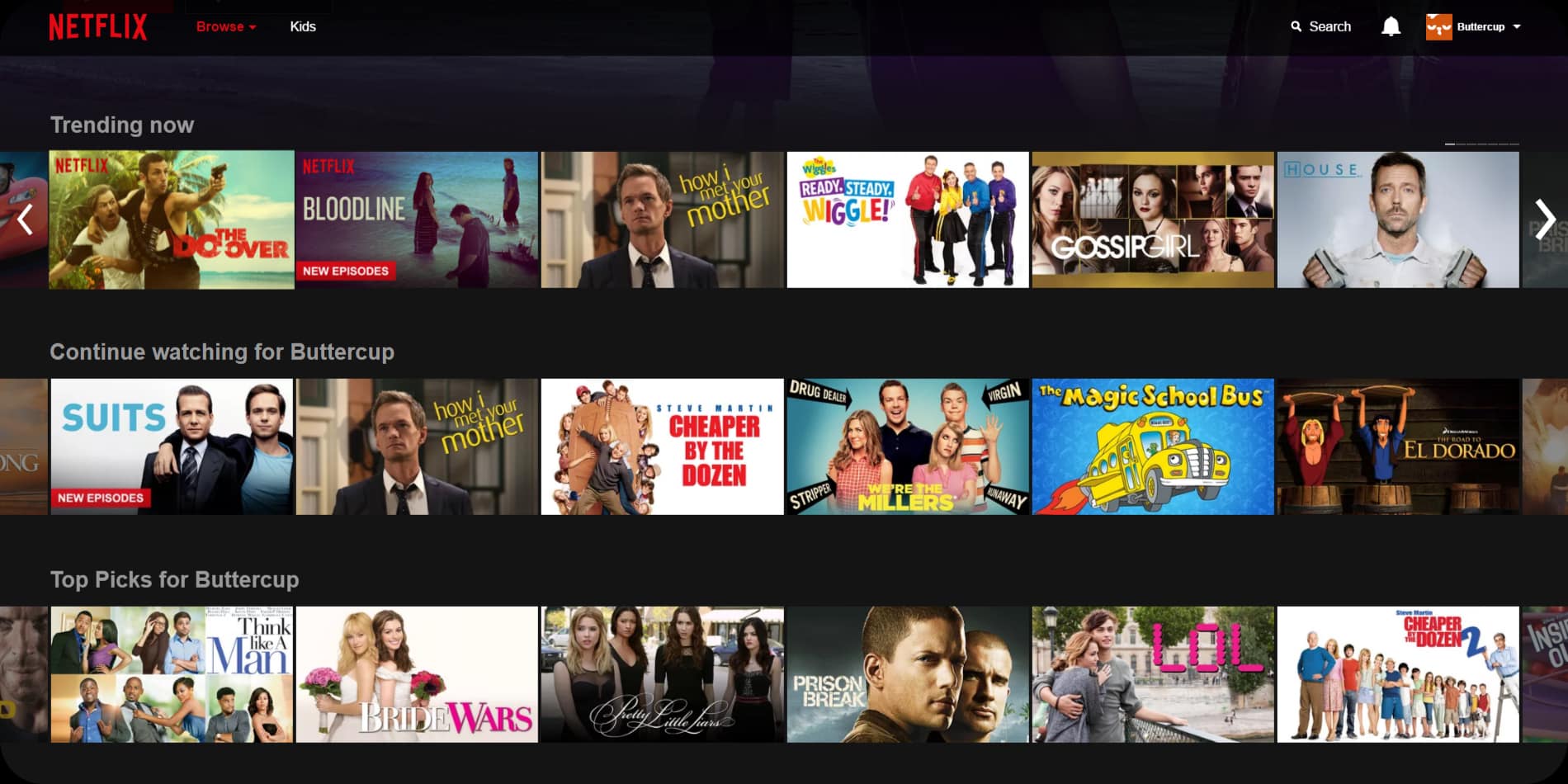May the GeForce Be with You: GeForce Now's Legality & Publisher Wars
There can hardly be any dispute: Nvidia's GeForce Now is cool. Instead of shelling out for a high-powered PC, you can rent a rig from Nvidia and play with the best of them via streaming. What's not to like? A lot, apparently. GeForce Now is hemorrhaging publishers. O'er the last-place month, many another leading publishers — including Activision, Bethesda, 2K Games, Square Enix, and Capcom — have either removed their games from the avail OR refused to take part to begin with. The publishers have not offered often explanation A to why they'Ra leaving the service, merely there's a good chance it has to do with money.
On first glance, this might not make much sense. Wherefore would Nvidia even need the publishers' permit in the first place? If GeForce Now only lets multitude turn games they already own, then what's stopping Nvidia from ignoring the publishers and offering the games in any event? The publishers already made their money when they sold-out the game originally — why should users (or Nvidia) have to pay back Sir Thomas More money to access games they already own?
The answer has to do with the fact that you don't actually own any of the games you purchase. Here's how I explained it last year:
Contrary to popular opinion, when you buy a picture game you are not buying the game itself but are instead buying a license to play the game. The EULA (finish-substance abuser license agreement) describes the permit you purchased and outlines the limitations encompassing that license. When it comes to video games, most EULAs pass individual, esoteric use of the software and take consumers to expend the halting as intended.
Until recently, the differentiation betwixt owning a game and owning a license to play a game hasn't really mattered. That's because, until recently, licenses were essentially independent from the underlying game data, meaning that developers could non revoke entree to a game erstwhile the gamey was distributed. As I explained last yr, developers Don River't sustain the power to "enter (a) user's national and remove (games) from their estimator."

GeForce Now changes the equation, since it allows users to get at games that are stored along Nvidia's computers, rather than their own. This leads to cardinal questions:
- Dress users deman a special license to access their games on NVidia's computers, or is that approach allowed by the original EULA?
- Does NVidia need a license to stream games o'er GeForce Now?
Does GeForce Now Violate Users' EULAs?
As one might anticipate, in that respect is considerable discrepancy in how certify agreements are written, and that variance makes all the difference. For example, Konami's EULAs grant users the rightmost "to establis and use one (1) copy of the Game Software package" and prohibits users from using the game in a "remote access arrangement." That accord distinctly considered and excluded the use of a service like GeForce Straight off. On the other hand, Activision's EULAs Cary Grant users "a license to install and exercise the Software." That agreement clearly does not exclude the substance abuser of a service like GeForce Nowadays. Finally, on that point are EULAs that are somewhat double.
For example, the license agreement related with Blizzard's StarCraft II grants users a license to "install the Game on one Oregon Sir Thomas More computers owned by you or under your legitimate control." The authenticity of GeForce under that provision depends connected whether a user has "legitimate control" concluded Nvidia's computers when they start a GeForce session. On the one hand, the user decides what games to playing period and has complete control over in-game options and game configurations. On the separate hand, users don't have any meaningful ascertain over the underlying computer. Thus, it's hard to tell one mode Oregon the some other whether GeForce Now would make up permissible under the Blizzard EULA.
While specific terms vary from agreement to agreement, my comprehensive impression is that most EULAs are like Activision's and do non expressly disallow a service like Nvidia GeForce.

Does Nvidia Need a License to Flow Games?
The question of whether Nvidia needs a license starts right where we left off. We all know that the Copyright Act makes it ill-gotten to transcript video stake code, videos, or animations without permission — that's wherefore EULAs exist in the first place. What is not as well legendary is that it is illegal to facilitate others' illegal copying. This means that it would Be mislabeled for Nvidia to propose a service that would lawsuit users to assault a license understanding.
From a working view, that pretty much settles the question — Nvidia is required to obtain permission from any publisher whose EULAs exclude the GeForce Now service. But that's not each. Publishers are non obligatory to use the cookie-cutter license agreements for all eternity. Instead, publishers lav revise their license agreements as they see fit. In careful, publishers like Activision can modify their standard EULAs to prohibit future purchasers from victimisation their licenses to access games done GeForce.
In other speech, the publishers book all the cards — at any rate with respect to future sales. While Nvidia could disregard publishers' preferences with deference to old licenses, that would likely damage Nvidia's on-going relationship with game publishers and stimulate information technology harder for Nvidia to obtain publisher permission to host new games and newly purchased copies of old games.
Notwithstanding the users' license agreements, there's another job. It is also illegal to "in public perform" a copyrighted work. While it's a bit unreasonable, the term "publicly perform" canful include cliquish streaming. The question of whether a stream constitutes a public performance depends upon whether the underlying armed service is made available to the general public. This is why Netflix has to ante up millions of dollars for each of its licensed shows — the fact that from each one user receives his operating room her own private rain bucket from Netflix doesn't change the fact that Netflix offers those private streams to everyone. For similar reasons, GeForce Now amounts to a public performance of video games, since whatsoever member of the public pot use the servicing to get at copyrighted computer game contented.

Then again, if GeForce Now simply allows users to rent rigs from Nvidia and grants users full control over those rigs for the duration of the rental, and so it makes little sense to hold Nvidia responsible for all the world — information technology cannot be said that Nvidia is making a exoteric performance if the subscribers are calling all the shots. At first coup d'oeil, this statement is compelling. Unfortunately, it doesn't hold upfield — the argument was rejected by the Agreed States Supreme Court, which considered the aforesaid question in the context of TV streaming.
In ABC v. Aereo, the Supreme Court considered the legality of Aereo, a startup that allowed subscribers to "rent" miniskirt-antennas and to stream TV shows that were received from those antennas. ABC sued Aereo and argued that users' ability to access broadcast TV on take meant that Aereo in public performed the copyrighted TV programs. The Supreme Court agreed. The fact that Aereo's subscribers chose when to aerate the antenna, which program to spotter, and when to activate the flow made no difference. For related reasons, users' participation in GeForce Now are not likely to defeat a newspaper publisher's claim that GeForce Now "in public performs" copyrighted computer game content.
GeForce Now is a remarkable Service. While it's non the first video spunky streaming service, IT is the first to tolerate users to pelt games they already own without making an additional purchase. The benefits for users are frank — they can access the best versions of their games without worrying about hardware upgrades surgery preventive system requirements. The downside for publishers is equally obvious — why let users access already purchased games when they hind end get over users (or Nvidia) to purchase the games again? This wouldn't be a problem, leave off for the discrepancy between what users think they purchased and what users actually purchased. Unfortunately, Nvidia got caught in the middle, and the realities of business, right of first publication natural law, and contract law mean it has no choice but to get the publishers on board — or die trying.
https://www.escapistmagazine.com/may-the-geforce-now-be-with-you-legality-publisher-permission/
Source: https://www.escapistmagazine.com/may-the-geforce-now-be-with-you-legality-publisher-permission/
0 Response to "May the GeForce Be with You: GeForce Now's Legality & Publisher Wars"
Post a Comment